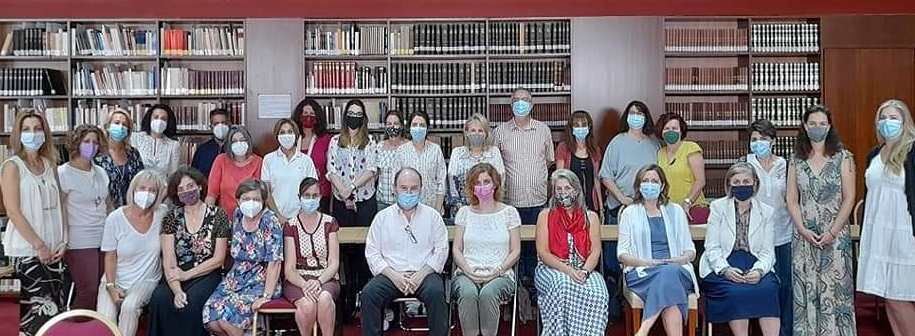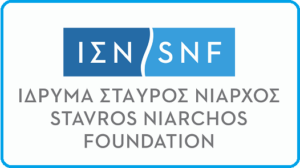Tagged: “Anger”
Forgiveness Therapy and Getting Past Unconscious Resistances
Guest Blog by Gianna Elms, LCSW
My experience as a psychotherapist who has specialized in helping clients resolve unconscious anger through forgiveness for nearly a decade has been a mission of healing. Forgiveness is the most powerful therapeutic method that I have found because it is the answer to what underlies the psychological conflicts that produce psychiatric symptoms in many, yet the medical model would prefer that we believe differently. Forgiveness is the antidote to anger, which is difficult for people to release because the world teaches us that “getting back” at someone for hurting us or at least desiring revenge is healthy and a sign of strength.
Beyond everything else that I have learned, there’s an important factor that must be in place before I recommend working with forgiveness therapy.

Gianna Elms, LCSW, is a mental health and disability advocate who has been practicing for twelve years in Missouri and Arizona and is a passionate ambassador for Forgiveness Therapy.
In the case of forgiveness therapy, the role of the psychotherapist is to help the client to abandon their anger towards the offender and adopt agape love for the offender. Some clients are not ready to even hear words that are common in forgiveness therapy like forgiveness, love, fear or even anger. I have learned that some other psychotherapeutic interventions are necessary to help these clients to be ready to accept that they are angry, and forgiveness can help them heal.
The greatest challenges that I have witnessed clients face when working towards forgiveness is an unwillingness to let go of the illusion of strength or control that they believe they have when they hold onto their anger and maintain a lack of healthy boundaries, which often leads to continuing or renewing a relationship where there is no forgiveness, trust, apology, or justice between the parties. It’s another attempt to hold onto another illusion that they have achieved forgiveness or reconciliation. Many times, it’s more about learning to let go of what is familiar, such as a belief system that they had prior to beginning psychotherapy or an unconscious defense mechanism (e.g., denial). After all, unconscious defense mechanisms have an original protective purpose. It can be hard for clients to believe that forgiveness, which is so new and unfamiliar, is going to offer them greater freedom and protection.
The journey to learning how to forgive is often challenging and rewarding as clients work through their pain. I have learned that it is important to always demonstrate that I understand by being genuinely empathetic and compassionately normalizing the client’s pain, fear, and other emotions. I also provide teaching and reasoning as a therapeutic intervention about how healthy boundaries, for example, serve as a means of self-protection from future abuse and how it is consistent with healthy self-love and agape love for others.
If a client decides to receive or continue treatment while communicating with the offender, I provide supportive therapy and help the client to identify how the relationship is healing or causing more pain. Clients are typically able to figure out on their own, with the help of this type of psychotherapeutic intervention, that the relationship is unhealthy, and they will ultimately abandon their false belief that somehow they can make a relationship work with the person who is unwilling to change, which then increases their willingness to accept the new, healthier ways of thinking, feeling, and behaving, to include the primary goal of forgiveness.
“I believe that forgiveness should be used more in therapy because it promotes wellness and it’s good for the soul.”
Gianna Elms, LCSW
There are some cases when clients choose not to forgive and the effects are simply the same as when they started treatment, or in some cases, worse. I believe that forgiveness should be used more in therapy because it promotes wellness and it’s good for the soul. The secret to forgiveness though is that once a person learns how to forgive…the person can forgive immediately, even while the injury is happening because they’ve learned the meaning of forgiveness beyond just the therapy model. It comes from their heart that was healed and they adopt it as a new belief system that protects them from anger as long as they put it into practice. It’s like a muscle memory in the unconscious that connects to the heart, which needs to be exercised regularly, so that they never forget. That’s something that I learned one night, and I now teach it to others.
I hope that you will consider your state in life and how forgiveness will be of value to you and others who you have the opportunity to help. We all need forgiveness because we have hurt others, but we need forgiveness to heal us when others hurt us too.
About Gianna Elms:
Gianna Elms, LCSW is a mental health and disability advocate who has been practicing for twelve years and is currently based in Flagstaff, AZ where she provides tele-therapy, spiritual counseling, consultations, and on-site services when travel permits. She has been a passionate ambassador of forgiveness since completing the International Forgiveness Institute’s Helping Clients Forgive course (now called Forgiveness Therapy). She has an MSW in Social Work and has a valid license to practice as a Clinical Social Worker in Arizona and Missouri. She is also a qualified clinical supervisor in Arizona.
 Before her MSW, Gianna earned an M.Ed. in Counseling Psychology and a B.S. in Disability Studies and has a valid certification to practice and supervise as a Rehabilitation Counselor nationwide. After receiving her MSW, she completed a Post-Graduate Fellowship in Psychoanalytic Thought and an ADA Coordinator Certification. Her clinical experience includes crisis intervention, treatment of past abuse, trauma, post-traumatic stress disorder (PTSD) and psychogenic non-epileptic seizures (PNES); evaluation and treatment of mood, anxiety, alcohol and substance use disorders and chronic pain; career counseling, case management, advocacy, accommodations of people who experience disabilities, blindness and visual impairments; and training clinicians and others.
Before her MSW, Gianna earned an M.Ed. in Counseling Psychology and a B.S. in Disability Studies and has a valid certification to practice and supervise as a Rehabilitation Counselor nationwide. After receiving her MSW, she completed a Post-Graduate Fellowship in Psychoanalytic Thought and an ADA Coordinator Certification. Her clinical experience includes crisis intervention, treatment of past abuse, trauma, post-traumatic stress disorder (PTSD) and psychogenic non-epileptic seizures (PNES); evaluation and treatment of mood, anxiety, alcohol and substance use disorders and chronic pain; career counseling, case management, advocacy, accommodations of people who experience disabilities, blindness and visual impairments; and training clinicians and others.
For more information about Gianna, you may find her on giannaelmslcsw.com or forgivepraylove.com.
Forgiveness Education in Greek Schools Expands with IFI – University Collaboration
More than 3,000 grade school students in Greece are learning how to reduce their anger, increase cooperation, gain resilience, and transform their traumas into personal character strengths through Forgiveness Education classes during this 2021-2022 school year.
“Trauma Transformation Through Forgiveness Education” is a social-emotional learning (SEL) program developed by Dr. Peli Galiti, Ph.D., M.Ed., research scholar at the University of Wisconsin – Madison. Dr. Galiti, a native of Athens, is also Director of the Greek Forgiveness Education Program (GFEP) started in 2014 by the Madison-based International Forgiveness Institute (IFI).
“This one-of-a-kind program is based on the educational research studies conducted by Dr. Robert Enright who pioneered the field of Forgiveness Education,” says Dr. Galiti. “His studies have demonstrated that Forgiveness Education classes help students reduce in anger and hostile attribution, increase in empathy, and actually result in improved grades.”
Dr. Enright is a UW-Madison educational psychology professor who co-founded the International Forgiveness Institute in 1994. He has developed comprehensive Forgiveness Education curricula for students in grades K-4 through 12th that are now being used in more than 30 countries around the world.
According to Dr. Galiti, the new program is actually a collaboration between the IFI, UW-Madison, and two Greek universities—the Aristotle University of Thessaloniki and the National and Kapodistrian University of Athens (where Dr. Galiti previously lectured). Funding is provided by the Athens-based Stavros Niarchos Foundation, one of the world’s leading private, international philanthropic organizations. The program also has the endorsement of the Greek Ministry of Education.
Dr. Galiti began implementation of the Trauma Transformation program last September by leading a series of Forgiveness Education workshops for 110 Greek teachers. Those teachers are delivering the forgiveness classes this semester at schools in four Greek cities–Athens, Larisa, Patra, and Thessaloniki.
That training focused on techniques and methods the teachers could use to help their students manage traumatic experiences and any personal or relational difficulties that might cause harm and pain. Thematic instructional units included:
- Forgiveness Education theory and principles.
- Why forgiveness is necessary and how it is applied in the school environment.
- Theories about trauma and its treatment.
- Transformation and wound healing through Forgiveness Education.
- Collaboration in the classroom and conflict resolution.
- The experience of Forgiveness Education in Greek schools: Best Practices and Case Studies.

These grade school teachers in Athens were among the 110 teachers who received Forgiveness Education training conducted by Dr. Peli Galiti as part of the collaborative effort between the University of Wisconsin-Madison and the University of Thessaloniki.
The collaborative training efforts for this Forgiveness Education program have received support and major funding through the Greek Diaspora Fellowship Program that is designed to help avert Greece’s brain drain and develop long-term, mutually beneficial collaborations between universities in Greece, the United States, Canada, South Africa and Australia. The Fellowship Program is managed by the Institute of International Education in collaboration with the Fulbright Foundation in Greece, and funded by the Stavros Niarchos Foundation.
In 2017, Dr. Galiti was one of 30 Greek- and Cypriot-born scholars representing 28 prominent United States and Canadian universities who traveled to Greece to conduct academic projects with their peers at Greek universities as part of the Greek Diaspora Fellowship Program. As part of her fellowship, Dr. Galiti hosted workshops about Restorative Justice and Forgiveness Education, along with conducting research about bullying prevention and class collaboration.
- Visit the Greek Forgiveness Education Program website.
- Watch a 4 min. 12 sec. video about the Greek program: Learning to Forgive.
- Read more about Dr. Galiti’s eductional work in Greece.
- Watch a video webinar on Greek Forgiveness Education featuring presentations by Dr. Galiti and Dr. Enright.
About the Stavros Niarchos Foundation:
The Stavros Niarchos Foundation (SNF) (www.SNF.org), is one of the world’s leading private, international philanthropic organizations, making grants in the areas of arts and culture, education, health and sports, and social welfare. Since 1996, SNF has committed more than $3.3 billion through 5,100 grants to nonprofit organizations in 135 countries around the world.
The Foundation funds organizations and projects that are expected to achieve a broad, lasting and positive impact for society at large, and exhibit  strong leadership and sound management. The Foundation also supports projects that facilitate the formation of public-private partnerships as an effective means for serving public welfare. In addition to its standard grants, the SNF has continued to respond to the urgent needs of Greek society, by providing relief against the severe effects of the socioeconomic crisis through three major grant initiatives of $378 million.
strong leadership and sound management. The Foundation also supports projects that facilitate the formation of public-private partnerships as an effective means for serving public welfare. In addition to its standard grants, the SNF has continued to respond to the urgent needs of Greek society, by providing relief against the severe effects of the socioeconomic crisis through three major grant initiatives of $378 million.
A Promise Kept
Have you ever made a promise to love, honor, and obey outside the covenant of marriage? In a certain way, I have.
That promise, which I made in 2002, has now been fulfilled as we turn the clock to 2022. We at the International Forgiveness Institute had just decided to start forgiveness education programs at the century’s turn. The point was this: If learning to forgive can aid people’s recovery from deep injustices against them, then wouldn’t it be a good idea to help young children learn to forgive so that, once the storms of life hit them as adults, then they would have a tool, forgiveness, to avert confusion, resentment, and even possible abiding anger and anxiety? It seemed to be worth a try and so we looked around the globe with this question: Where is there a society that now is post-conflict, which has suffered, and which might benefit from forgiveness education?
Our team at the International Forgiveness Institute, after much thought and discussion, centered on Belfast, Northern Ireland for four reasons: 1) There had been The Troubles across Northern Ireland, in which Irish Catholics and British Protestants were in an escalated conflict since 1972’s Bloody Sunday in Derry/Londonderry; 2) there was a signed peace accord in 1998, which reduced the conflict, but still there was a post-conflict sense of tension; 3) the two groups were English-speaking and so we would not have to start with interpreters; and 4) Ireland and Northern Ireland are two of the closest ports-of-call from the Eastern United States.
So, off my two sons and I went in July of 2002, landing first on the West Coast of the Emerald Isle and then to Belfast, where we met the esteemed Anne Gallagher, who formed Seeds of Hope to do her best to bring peace to Northern Ireland. Anne was amazing in introducing us to primary school personnel and we had the great honor to start forgiveness education in both St. Vincent de Paul Primary School and Ligoniel Primary School, both on the Ligoniel Road in Belfast.
“Forgiveness isn’t something that’s talked about with reconciliation, but it’s needed to bring closure to the pain and suffering experienced in Northern Ireland. You can’t contemplate hope unless you address despair. To heal the wounds of Northern Ireland I believe you have to see humanity in the face of the enemy. Forgiveness is a journey.”
Anne Gallagher (1953-2013)
Upon my first visit to the principal of St. Vincent de Paul School, Mr. Brian McParland, he heard our proposal for forgiveness education and agreed that this is a vital vision for Northern Ireland. He assented to having this programme pioneered in his school. Yet, he quickly added this: “You will not last more than 3 years here in Belfast.” I was surprised to hear that and asked, “Brian, why do you say that?” He looked at me and said, “No one lasts more than 3 years in Belfast. After that time, people grow weary, the thrill of travel wears off and they quit.” I took a deep breath and answered, “Brian, I will give you 20 years.” He looked at me with kindness, but said nothing.
Well, as I consult Siri on the Apple Watch, I see that the calendar is about to turn to the year 2022. Hold on for a minute. . . I have to do a little bit of quick math. Ahh, yes. . . it has been exactly 20 years now since my promise to Mr. McParland. Our International Forgiveness Institute has successfully implemented forgiveness education now in many schools of Belfast and surrounding communities.
As we end the 20th year, some of us at the University of Wisconsin-Madison are doing a research program with 18 classrooms of primary 7 students (grade 5 in the United States), across Northern Ireland, funded by the John Templeton Foundation. This will culminate in an international conference in Madison, Wisconsin, led by Jacqueline Song of our International Forgiveness Institute,  in which these teachers will participate.
in which these teachers will participate.
As I look around, I see that Mr. Brian McParland now is retired from his educational duties. Mrs. Claire Hilman, the principal at Ligoniel Primary in 2002, also is retired. Dear Anne Gallagher now has passed to eternal life. No other educators who joined us two decades ago are still there. As I look around, I see that I have kept my promise now only to God and me. And that is sufficient for the promise-keeping. I hope that at least some in Northern Ireland are the better for it.
A promise kept may bear fruit of which none of us is aware and this is why we press on with the vision for forgiveness education, started two decades ago.
Robert
What do I say to a partner who keeps pressuring me to forgive? I am not a very virtuous person, he keeps telling me, if I will not forgive him.
A key question is this: Are you open to the possibility of forgiving in the future? If so, then you can discuss with your partner that forgiving can take time. You can clarify that your intention is to forgive, but you need a period of processing what happened, of dealing with your emotions (of sadness or anger, for example). You should let him know that forgiveness is a choice which needs to emerge slowly for you in this case. Even asking him for patience may reduce his pressure on you to forgive.
I have a problem with my partner. He does not see that he has hurt me, despite my best efforts. I now am wondering if reconciliation is even possible. What I mean is that he keeps hurting me and doesn’t even see it.
This is a difficult situation because you now have a lack of trust that he can change. I recommend that you first forgive him and from that softened-heart position, approach him at an opportune time and have this kind of a conversation with him: First, you could let him know that you suspect that he is practicing the psychological defense of denial, in that he possibly is afraid to see the truth of his hurtful actions. Second, if he begins to see that he indeed is using the defense of denial, you then can let him know the extent of your hurt, for example, on a 1-to-10 scale with 10 being an enormous amount of hurt. Third, if he sees this hurt and sees it as caused by his actions, the next step is to work with him on a plan to deliberately change the behavior that is causing the hurt. Please keep in mind that even if all three strategies work, it still will take some time for you to build up trust because this tends to develop slowly after a pattern of injustices that cause hurt. Your continuing to forgive may increase your patience with the trust process.




